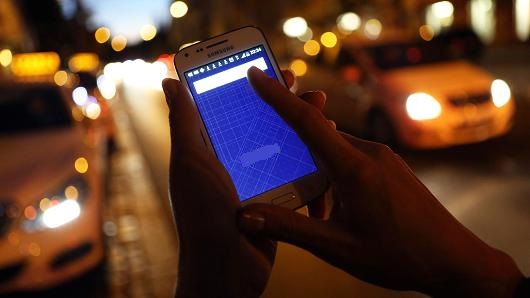
Most industries have had to face the advent of mobile technology and its entry into our lives. Services as varied as online shopping and iGaming, have received dedicated implementations suited for the mobile environment.
However, other markets, such being the case for travel and hospitality, have been slower to react.
Positive Impact of Mobile Technology
The mobile revolution has significantly impacted our lives, both positively and negatively. Nonetheless, if you would ask the average person if tech systems help their lives on a daily basis, the answer would undoubtedly be positive.
Mobile technology provides users with several perks that its older desktop counterpart cannot rival. These are only a few of the advantages for the mobile consumer.
Connectivity
Keeping in touch with friends, relatives, and like-minded folk has never been less complicated.
Thanks to mobile applications such as Facebook, WhatsApp, and Skype, you can now communicate across oceans with little effort.
It is suitable for both new and old relationships. Socialising was entirely changed by broader access to and appeal of the internet. However, with mobile implementations, these trends skyrocketed with mobile deployments, with a considerable chunk of our social life occurring via social media services.
Enhanced Productivity
You can now take notes and store documents online with Evernote or Google Drive. You have the information at your fingertips, so organising it is even simple than before. Plus, you can access them anywhere, anytime, with mobile apps.
Productivity services have undoubtedly helped with work in our current context, even leading to a broader implementation of work from home or at a distance. Consequently, they also blurred the line between leisure and work, with productivity apps finding use even when you’re off work. This brings us to the next positive aspect of mobile apps.
Skill Enhancement
With the ever-advancing mobile technology comes a need to learn new skills. You can do this on the go without attending classes or going back home through services like Udemy. Online platforms offer courses for just about any topic imaginable.
There is something for everyone from programming languages like C++ to violin, music, marketing, and data science. So download them while the urge to learn is still alive.
Source of Entertainment
The mobile phone is not only a tool for communication but also an entertainment device.
You can watch your favourite TV show or news highlights with one touch of a button, even on the go. With mobile entertainment apps, you get access to whatever you want in a matter of seconds.
Your handheld devices can even double as gaming platforms where people looking for some relaxation can enjoy playing games. Still, others can use them to pass the time during their commute home.
Life Made Easy
There is no stress about getting lost in a boggling interface or missing a payment anymore. Your mobile device can help you take care of it all.
With better implementations of mobile software programs, you can take care of infamously unpleasant and complicated aspects, like paying your bills, booking cabs or hotels, and finding your way around unknown areas.
Health Management
Mobile medical apps are revolutionising how healthcare providers do their jobs. An app can provide users with a rapid medical review backed by experts.
Doctors and practitioners, too, can store all patient records in the cloud, so they’re always accessible from anywhere.
Mobile health apps can even help you find an allergist if necessary. In third-world countries, rural populations can seek medical care at their location using their smartphones.
The negative impact of Mobile Technology
Yes, we get many perks from mobile technology, and our lives have been irrevocably changed. But, many a time, it also was for the worse.
Here are only some of the most infamous examples from our current environment.
Source of Addiction
Technology has become an addiction, just like gambling. The Diagnostic and Statistical Manual of Mental Disorders recognises mobile device addiction in problem gamers and other compulsive users. Addiction arises because mobile apps provide us with immediate, unconditioned pleasure, which we crave more than the lost time and sanity.
Becoming addicted to mobile technology results in less productivity at work or school tasks, as well as issues in daily social life. In some cases, such as social media addiction, one’s self-image and perception can take a turn for the worse.
Objects of Distraction
Using technology such as smartphones in class for non-educational purposes is distracting for almost half the students, according to a 2019 study published by The Canadian Journal for the Scholarship of Teaching and Learning.
Mobile devices drive away people’s attention, affecting productivity and quality of life negatively.
Excellent Time Wasters
An average person spends around five hours per month looking at smartphones or tablets, locking eighty-hour spans in front of screens.
This number jumps up significantly during peak times like lunch breaks.
Employees waste up to eight hours weekly checking their mobile devices for personal reasons. This costs companies and businesses billions each year.
Cause of Depression
Teens are increasingly turning to mobile phones for comfort and distraction, these being the first steps on the spiral leading down to depression.
Such habits can become problematic in teenagers who lack healthy real-life interactions outside what’s on social media platforms. Eventually, users become lonely and anxious.
Affects Social Skills
The overuse of smartphones has an enormous impact on people’s social lives. People have no connection to real-world interactions.
Many users replace human connections with online social interactions.
Humans are turning into “smombies” that only live through virtual activities. Surfing Google or checking Instagram stories overtakes face-to-face interactions with friends.
The Bottom line
The significance of mobile technology in our lives is undeniable. Constant use of the internet and our devices allow us to access information and communicate with others anywhere, anytime.
But what are the long-term effects of this stable connection? Let’s not forget how mobile technology affects different aspects of our lives, such as work, family time, and social interactions.






